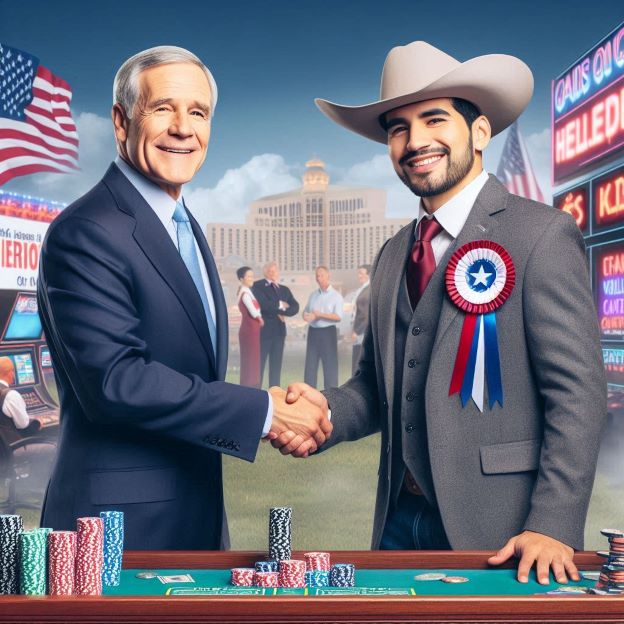
Gambling and politics share a history often intertwined in ways most people don’t realize. Much like gamblers, politicians are constantly taking chances, taking calculated risks, and hoping for favorable outcomes. However, the relationship between the gambling industry and political campaigns runs deeper than mere metaphor. The influence of the gambling industry on politics, particularly through campaign donations and lobbying, has significant implications for how policies are shaped, and laws are enforced.
The Financial Power of the Gambling Industry
The gambling industry is a financial powerhouse, generating billions of dollars in revenue each year. This immense wealth from games like high stakes roulette, slots, and card games aong others, allows it to wield considerable influence in the political sphere. Political campaigns require vast amounts of money, and the gambling industry has become a significant contributor, often donating large sums to candidates who support their interests.
In the United States, campaign finance laws allow industries, including gambling, to contribute to political campaigns through Political Action Committees (PACs). These donations are not merely acts of charity; they are investments. The gambling industry uses its financial contributions to support candidates who favor relaxed regulations, expanded gambling opportunities, and lower taxes on gambling revenue.
This financial influence is evident across various levels of government. In states where gambling is a major industry, such as Nevada and New Jersey, the relationship between politicians and the gambling industry is especially strong. This dynamic raises important questions about the integrity of the political process and the potential for policies to be shaped by industry interests rather than the public good.
The Impact on Legislation
The influence of gambling money in politics is not limited to campaign donations. The industry also spends significant resources on lobbying efforts aimed at shaping legislation. Lobbyists work on behalf of the gambling industry to promote laws that are favorable to their business and to oppose regulations that could limit their profitability.
One notable example is the expansion of online gambling in the United States. Over the past decade, the gambling industry has successfully lobbied for the legalization of online gambling in several states. This has allowed companies to reach new customers and increase their revenue while operating in a relatively unregulated environment.
On the other hand, there have been efforts to limit or ban certain forms of gambling, particularly those seen as predatory or harmful to vulnerable populations. However, the gambling industry’s influence often makes it difficult for these efforts to gain traction. Politicians who receive significant contributions from the gambling industry may be less inclined to support legislation that could negatively impact the industry.
A Global Perspective
The relationship between gambling and politics is not unique to the United States. In countries around the world, the gambling industry plays a significant role in shaping political outcomes. For example, in the United Kingdom, the gambling industry is a major political donor, contributing millions of pounds to various political parties.
Similarly, in Australia, the gambling industry has been a major player in political campaigns, particularly in states where gambling is a major part of the economy. This has led to a situation where gambling regulations are often shaped by industry interests rather than public health considerations.
The Ethical Dilemma
The influence of gambling on politics raises important ethical questions. Should industries interested in certain policies be allowed to contribute to political campaigns? Does the acceptance of these donations compromise the integrity of elected officials?
Critics argue that the relationship between the gambling industry and politics is problematic because it creates a situation where policies may be shaped by industry interests rather than the public good. They believe that this can lead to the enactment of laws that prioritize corporate profits over the welfare of citizens.
Supporters, however, argue that the gambling industry, like any other business sector, has a right to participate in the political process. They contend that campaign contributions and lobbying efforts are simply ways for the industry to protect its interests and that politicians are ultimately accountable to their constituents, not their donors.
READ ALSO: Political Fundraising through Gambling
Moving Forward
As the relationship between gambling and politics continues to evolve, it is important for voters and policymakers to remain vigilant. Transparency in campaign finance and lobbying efforts is essential to ensuring that the political process remains fair and that policies are made in the best interests of the public.
While the gambling industry will likely continue to play a significant role in politics, there is a growing awareness of the need to balance industry interests with the welfare of citizens. By keeping a close eye on money’s influence in politics, we can work towards a more transparent and accountable political system.

